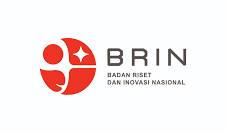- Focus and Scope
- Section Policies
- Peer Review Process
- Publication Frequency
- Open Access Policy
- Archiving
Focus and Scope
Focus The journal publishes original papers in the field of Electronics & Electrical computer and informatics engineering but not limited to, the following scope:
Electronics and Electrical:
- Electronic Materials,
- Microelectronic System,
- Design and Implementation of Application Specific Integrated Circuits (ASIC),
- System-on-a-Chip (SoC) and Electronic Instrumentation Using CAD Tools,
- Digital signal & data Processing, ,
- Electrical Engineering Materials,
- Electric Power Generation,
- Transmission and Distribution,
- Power Electronics,
- Renewable Energy,
- Electric Traction,
- Electromagnetic Compatibility,
- High Voltage Insulation Technologies,
- High Voltage Apparatuses,
- Lightning Detection and Protection,
- Power System Analysis,
- SCADA,
- Electrical Measurements;
Computer and Informatics:
- Computer Architecture,
- Pervasive Computing, Computer Network,
- Embedded System,
- Human—Computer Interaction,
- Virtual/Augmented Reality,
- Computer Security,
- Software Engineering
- Knowledge Based Management System,
- Network Traffic Modeling,
- Performance Modeling, Dependable Computing,
- High Performance Computing,
- Computer Security,
- Human-Machine Interface,
- Intelligent Systems,
- IT Governance,
- Networking Technology,
- Optical Communication Technology,
- Next Generation Media,
- Robotic Instrumentation,
- Information Search Engine,
- Computer Vision,
- Information Retrieval,
- Intelligent System,
- Distributed Computing System,
- Next Network Generation,
- Computer Network Security,
- Natural Language Processing,
Section Policies
Articles
Peer Review Process
Peer Review Process
Every article that goes to the editorial staff will be selected through Initial Review processes by Editorial Board. Then, the articles will be sent to the Mitra Bebestari/ peer reviewer and will go to the next selection by Blind Preview Process. After that, the articles will be returned to the authors to revise. These processes take a month for a maximum time. In the each manuscript, Mitra Bebestari/ peer reviewer will be rated from the substantial and technical aspects. Mitra Bebestari/ peer reviewer that collaboration with Power Elektronik : Jurnal Orang Elektro is the experts in the public administration area and issues around it. They were experienced in the prestigious journal management and publication that was spread around the national and abroad.
Manuscript processing time in Power Elektronik : Journal Orang Elektro:
- The author has 15 days waiting period on the first article submission, the section editor will decide whether the article needs to be revised or not.
- Section editor needs 3 days to examine the article based on Power Elektronik : Jurnal Orang Elektro author guideline.
- Author has 12 days to revise the article consistent with the Power Elektronik : Jurnal Orang Elektro author guideline.
- The revised article given to the editor to be reviewed, the editorial team needs 15 days to finish the review.
- If the article Declined, section editor has 3 days to inform the author regarding the editorial team decision.
- If the article Revision Required, editorial team will proceed the article to the reviewer.
- Reviewer has 30 days to review the article divided into two times review and provide the decision, Accepted or Declined
- The editorial team discusses the final decision in an editorial team meeting whether the articles recommended by the reviewers proceed to be Published or Declined. The editorial team has 20 days to make the final decision.
- The soon-to-be-published articles, lay-outed by the section editor for 30 days.
- Author has 3 days to confirm the layout result.
- Section editor publishes the accepted article
Publication Frequency
Power Elektronik : Jurnal Orang Elektro is a peer-reviewed journal published two times a year (January, Mei and September).
January Edition:
Submission Deadline : 30 November 2017
Notification of review results : 18 December 2018
Journal Published : 25 January 2018
Mei Edition:
Submission Deadline : 30 Mar 2018
Notification of review result: 18 Apr 2018
Journal Published : 25 May 2018
September Edition:
Submission Deadline : 30 Jul 2018
Notification of review result: 18 Ags 2018
Journal Published : 25 September 2018
Open Access Policy
This journal provides immediate open access to its content on the principle that making research freely available to the public supports a greater global exchange of knowledge.
Archiving
This journal utilizes the LOCKSS system to create a distributed archiving system among participating libraries and permits those libraries to create permanent archives of the journal for purposes of preservation and restoration. More...















